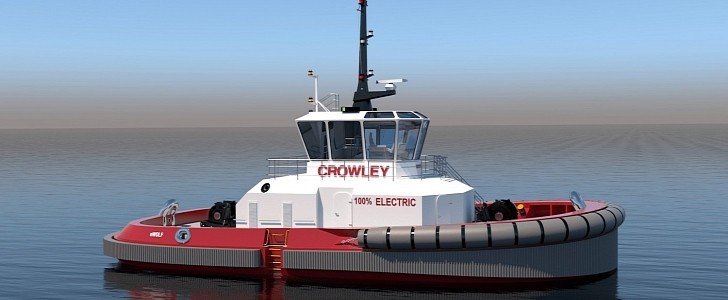The United States hasn’t exactly taken the lead when it comes to green shipping, an area where countries such as Norway and Denmark are demonstrating greater progress. But a recently introduced bill could change that.
Clean Shipping Act of 2022 is the name of a bill that could go down in history as one of the most important steps towards a green shipping industry in the U.S. Congressman Alan Lowenthal (CA-47) and Congresswomen Nanette Barragan (CA-44), who represent the districts for the ports of Long Beach and Los Angeles, respectively, are the ones who have introduced the bill earlier this week.
According to Maritime Gateway, Congressmen Lowenthal first spoke of this bill in June, ahead of the last meeting of the UN International Maritime Organization’s Marine Environment Protection Committee. IMO is the agency that regulates shipping and which has set the goal of cutting carbon emissions by at least 50% compared to 2008, by 2050. But that’s still not enough to comply with the Paris Agreement's target of preventing temperature rises above 1.5-degree Celsius (2.7 F) this century.
Congresswoman Barragan, who co-sponsored the Clean Shipping Act of 2022, calls it “bold legislation” focused on climate-smart ports. According to Offshore Energy, this would be the first stand-alone legislation aimed at eliminating pollution from shipping in the U.S.
On one hand, this bill is meant to set carbon intensity standards for fuels that would become increasingly higher. These would range from 20% lifecycle CO2 reductions required starting with 2027 up to 100% reductions by 2040. On the other hand, it aims to completely eliminate in-port emissions much earlier, as soon as 2030. This means that any ship berthing or anchoring in U.S. ports would have zero GHG (greenhouse gas) emissions while in port.
The Environmental Protection Agency (EPA) would be responsible for making sure that these standards are met without disrupting the shipping flow. This bill “will clean up our ports once and for all, with a straightforward nationwide policy,” stated Congressman Lowenthal.
According to Maritime Gateway, Congressmen Lowenthal first spoke of this bill in June, ahead of the last meeting of the UN International Maritime Organization’s Marine Environment Protection Committee. IMO is the agency that regulates shipping and which has set the goal of cutting carbon emissions by at least 50% compared to 2008, by 2050. But that’s still not enough to comply with the Paris Agreement's target of preventing temperature rises above 1.5-degree Celsius (2.7 F) this century.
Congresswoman Barragan, who co-sponsored the Clean Shipping Act of 2022, calls it “bold legislation” focused on climate-smart ports. According to Offshore Energy, this would be the first stand-alone legislation aimed at eliminating pollution from shipping in the U.S.
On one hand, this bill is meant to set carbon intensity standards for fuels that would become increasingly higher. These would range from 20% lifecycle CO2 reductions required starting with 2027 up to 100% reductions by 2040. On the other hand, it aims to completely eliminate in-port emissions much earlier, as soon as 2030. This means that any ship berthing or anchoring in U.S. ports would have zero GHG (greenhouse gas) emissions while in port.
The Environmental Protection Agency (EPA) would be responsible for making sure that these standards are met without disrupting the shipping flow. This bill “will clean up our ports once and for all, with a straightforward nationwide policy,” stated Congressman Lowenthal.






